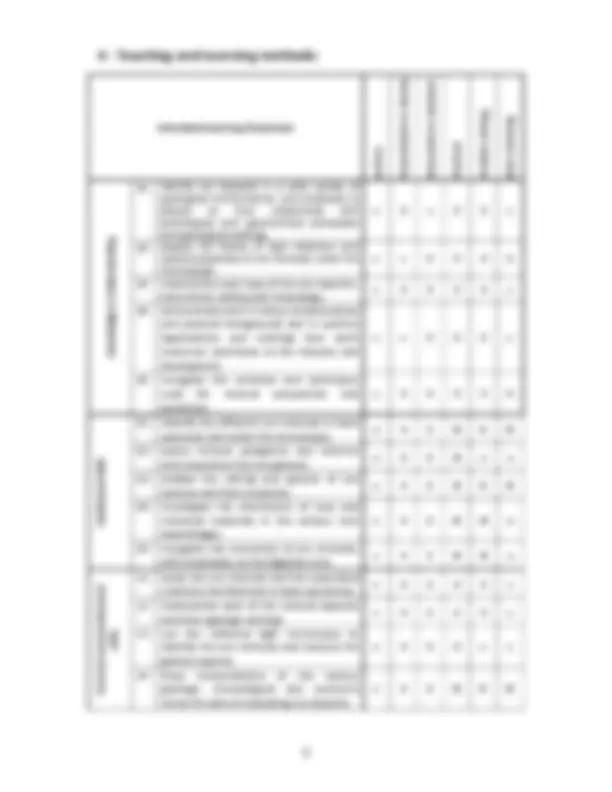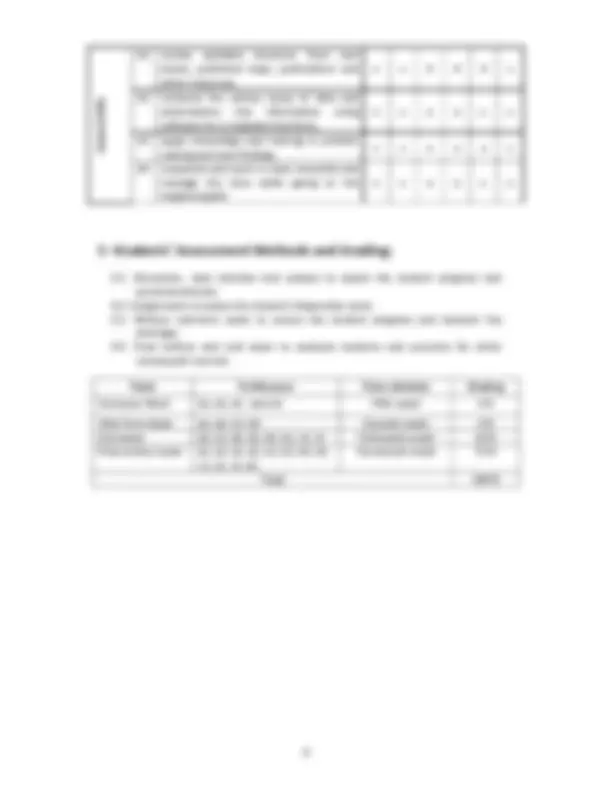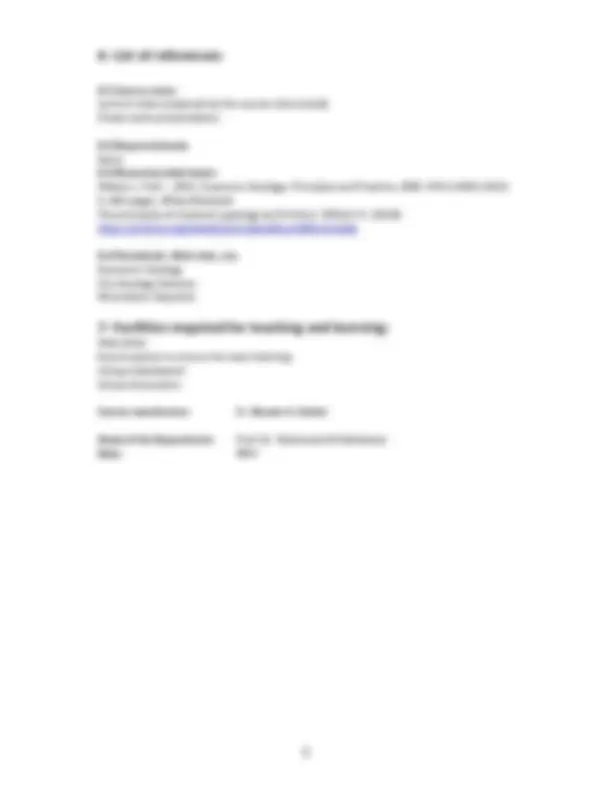





Study with the several resources on Docsity

Earn points by helping other students or get them with a premium plan


Prepare for your exams
Study with the several resources on Docsity

Earn points to download
Earn points by helping other students or get them with a premium plan
Community
Ask the community for help and clear up your study doubts
Discover the best universities in your country according to Docsity users
Free resources
Download our free guides on studying techniques, anxiety management strategies, and thesis advice from Docsity tutors
The course specification for 'economic geology' at the faculty of science, department of geology, benha university. The course aims to introduce students to the classification of resources, the formation, discovery, extraction, and use of physical resources such as ores, fossil fuels, and evaporates. It covers topics like mineral prospecting, exploration, mine development, and mineral treatment. The course provides knowledge and understanding of ore deposits, their relationship with geological processes, and the methods and techniques used for mineral prospection and extraction. It also develops intellectual, practical, and professional skills in identifying ore minerals, assessing mineral paragenesis and textures, analyzing ore settings and genesis, and evaluating ore deposits. The course includes lectures, practical sessions, and assessments to ensure students' progress and understanding of the subject matter.
Typology: Study notes
1 / 5

This page cannot be seen from the preview
Don't miss anything!




Title: Economic Geology Code: 434 G Year/level: fourth level Teaching Hours: Lectures: 2 Tutorial: 0 Practical: 2 Total: 3 h/week
To introduce students to classification of resources in terms of their being biological or physical; and renewable or non‐renewable, Student to investigate formation, discovery, extraction and use of physical resources with respect to ores, fossil fuels and evaporates, To familiarize students with the fundamentals of mineral prospecting, exploration, mine development and mineral treatment.
a ‐ Knowledge and understanding: On successful completion of the course, the student should: a.1. identify ore deposits in a wide variety of geological environments, and emphasis is placed on their relationship with petrological and geochemical processes and geological settings, a.2. assess the theory of light reflection and optical properties of ore minerals under the microscope, a.3. characterize each type of the ore deposits, occurrence, setting and mineralogy, a.4. demonstrate both in theory (mathematical and physical background) and in practice (applications and training) how earth resources contribute to the industry and deveopment, a.5. recognize the methods and techniques used for mineral prospection and extraction.
b ‐ Intellectual skills: On successful completion of the course, the student should be able to. b1. identify the different ore minerals in hand specimen and under the microscope, b2. assess mineral paragensis and textures and reconstruct the ore genesis, b3. analyze the setting and genesis of ore textures and their evolution, b4. investigate the distribution of ores and industrial materials in the various rock assemblages, b5‐ recognize the economics of ore minerals, with emphasize on the Egyptian ores. c ‐ Practical and professional skills: On successful completion of the course, the student should be professionally able to: c1. study the ore minerals and the associated criteria in the field and in hand speciemen, c2. characertize each of the mineral deposits and their geologic settings, c3. use the reflected light microscope to identify the ore minerals and textures for genetic aspects, c4. draw interpretations of the various geologic, mineralogical and economic issues for sake of evaluating ore deposits. d ‐ General skills: On successful completion of the course, the student should be able to: d1. review available literature from text books, published maps, publications and other resources, d2. interpret the various types of data and observations into information using software and formulate the results in a readable final form, d3. apply knoweldge and training in probem solving and new findings. d3. cooperate and work in team smoothly and manage the time while going to the targeted goals.
Topic Lecture hours Tutorial hours Practical hours
General Skills d1 review available literature from text books, published maps, publications and other resources, x x 0 0 0 x d2 interpret the various types of data and observations into information using software for a readable final form, x x o o x x d3 apply knoweldge and training in probem solving and new findings, x x o o o x d4 cooperate and work in team smoothly and manage the time while going to the targeted goals. x x o o x x
5.1. Discussion, class activites and quizzes to assess the student progress and personal attitude, 5.2. Assignments to assess the student independen work, 5.3. Written mid‐term exam to ensure the student progress and discover the shortage, 5.4. Final written and oral exam to evaluate students and promote for other consequent courses. Tools To Measure Time schedule Grading Semester Work a1, a2, a3, and b2 Fifth week 6 % Mid‐Term Exam a1, a5, b3, b4. Seventh week 6 % Oral exam a2, a3, a4, a5, b5, b1, c2, c3 Thirteenth week 16 % Final written exam a1, a2, a3, a5, b1, b2, b4, b5, c1, c2, c3, d2. Fourteenth week 72 % Total 100 %
6 ‐ 1 Course notes Lecture notes prepared by the course instructor(s) Power point presentations 6 ‐ 2 Required books None 6 ‐ 3 Recommended books Walter L. Pohl ., 2011. Economic Geology: Principles and Practice, ISBN: 978 ‐ 1 ‐ 4443 ‐ 3663 ‐ 4, 680 pages, Wiley‐Blackwell The principles of economic geology by Emmons, William H. (1918) https://archive.org/details/principlesofecon00emmoiala 6 ‐ 4 Periodicals, Web sites, etc. Economic Geology Ore Geology Reviews Mineralium Deposita
Data show Sound system to ensure the ease listening Using a blackboard Group discussions Course coordinator: Dr. Basem A. Zoheir Head of the Department: Prof. Dr. Mohamed El‐Fakharany Date:^2014